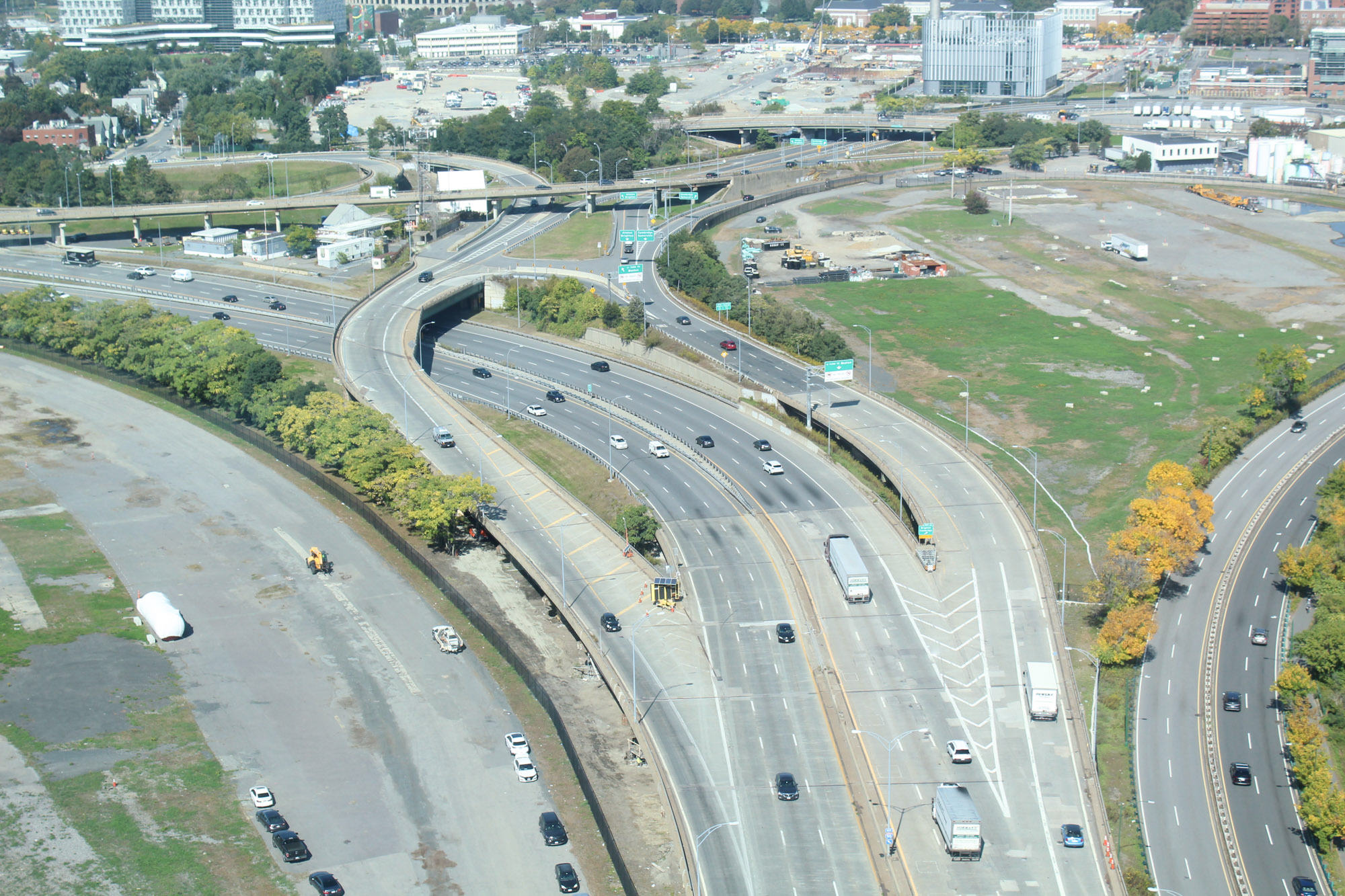After receiving long-awaited federal funding, the Allston multimodal project is expected to break ground in late 2027.

Earlier this month, Massachusetts was granted $335.4 in federal funding for the Allston Multimodal I-90 Project from the Reconnecting Communities and Neighborhoods program.
The approved funding comes after two previous failed funding applications.
“The news of this federal infrastructure grant, which means the project will move forward, is great news for Allston,” said Tom Ryan, a senior advisor at A Better City. “This plan is the first time that the project can go forward.”
Anthony D’Isidoro, the president of the Allston Civic Association and member of the Allston I-90 Multimodal Project Task Force, said this is “a very personal project” to Allston residents, especially considering the previous extension of the Mass Pike through the neighborhood.
“In the disruption that was to our community, we lost a lot of homes and businesses,” D’Isidoro said. “We had our community split in half … [The project provides] the potential opportunity to reconnect our community.”
The project plans to provide “better connectivity,” including enhancing access for walking along the Charles River, bicycling and public transportation, D’Isidoro said.
Ryan said the creation of the new West Station “will be a great asset for the Allston neighborhood for people seeking access to jobs throughout different neighborhoods in Boston.”
The project will also create bike and pedestrian lanes, which Ryan said are a “big part” of the project, for safer access to jobs and recreation.
However, D’Isidoro said there is “anywhere from a seven-to-10 year construction period” for the project, and a press release from the state said mobilization and construction activities would not begin until approximately late 2027.
Considering the timeline, D’Isidoro said the task force also aims to “quick start” local projects that can be completed earlier.
D’Isidoro said these projects include the replacement of both the Franklin Street pedestrian overpass and the Cambridge Street overpass as well as sound mitigation along Lincoln Street.
“Those are three projects that … we’ve identified and are trying to get the Commonwealth to commit to at an earlier stage rather than later, to at least get something out there that can add some real benefit to our community,” D’Isidoro said.
Alongside the Allston Multimodal I-90 Project, the BPDA is leading the Beacon Park Yard Regional Framework Plan, aiming to redesign the Allston Interchange to create a new neighborhood in Beacon Park Yard.
“In partnership with the City of Boston and BPDA’s Beacon Park Yard Regional Framework Plan, we have the opportunity to transform this area, creating a neighborhood bolstered with new housing,” a BPDA spokesperson wrote in an email.
Ryan said the opportunity in Beacon Park Yard is “very rare.”
“We’re in an area in Boston that is now going to have access to transit and is a place where it could potentially see 40 acres of new development,” Ryan said. “It’s a great opportunity and an opportunity we have to get right.”
Specifically, creating West Station as a “transit hub” will reduce traffic congestion, Ryan said.
“It will allow people from Greater Boston to get to Allston for the new jobs that will be created in Beacon Park Yard through transit, as opposed to being a space that is needed to get to only by single passenger vehicles or cars,” Ryan said.
However, concerns have been raised regarding the effects of climate change in Allston, especially considering that enhancing the neighborhood’s access to the Charles River is a key component to the project.
Dira Johanif, the senior climate resilience associate for the Charles River Watershed Association, said the project has incited concern over the impact of flooding in the area on the ecosystem and roadways.
“This design currently would really only treat 35% of the impervious cover as resulted from this project,” Johanif said. “That can cause stormwater runoff going into the river and impacting water quality.”
Johanif said the addition of impervious surfaces, which cannot effectively absorb rainfall, will increase “the urban heat island for Boston and for Allston-Brighton … [and] the feeling of extreme heat.”
“To really mitigate climate change impacts, especially flooding, is to really consider green stormwater infrastructure that would help absorb, store or filter stormwater,” she said.
Johanif added that “having a really good buffer between the road and the riverbank is an important part for this project,” especially in “the throat” of I-90, a traffic congestion area that lies on the waterfront of Charles River in Allston.
In a statement, Healey called the funding “another major win for Massachusetts.”
“The Allston Multimodal Project is a once-in-a-generation opportunity to improve transportation infrastructure in the Allston community and better connect residents across the state with housing and job opportunities,” Healey said.






















































































































